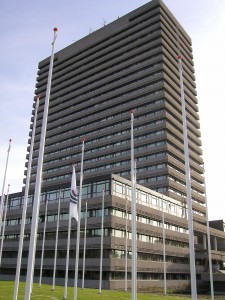 On 20 January 2017, the Dutch Supreme Court ruled that it had no jurisdiction over claims brought by two trade unions against the European Patent Organization (EPO), an international organization (partly) based in The Hague. The Court held that the organization enjoyed immunity from the jurisdiction of Dutch courts in accordance with the EPO Protocol on Privileges and Immunities. This judgment puts an end to a drawn-out and highly public case which threw the spotlight on the poor employment conditions in the EPO, including apparent restrictions of employees’ right to strike and to participate in EPO decision-making. The Supreme Court could be criticized for upholding the organization’s immunity in this case. However, from a systemic point of view, it is heartening that the Court affirmed the principle that conferring immunity from jurisdiction should not affect the very essence of a claimant’s right of access to justice, enshrined in Article 6 of the European Convention on Human Rights (ECHR). In future cases, claimants can continue to rely on Article 6 ECHR to challenge acts of international organizations before Dutch courts. As far as the EPO case is concerned, it is hoped that, even if the EPO’s immunity was upheld, the Dutch litigation serves as a wake-up call to push through important reforms within the organization.
On 20 January 2017, the Dutch Supreme Court ruled that it had no jurisdiction over claims brought by two trade unions against the European Patent Organization (EPO), an international organization (partly) based in The Hague. The Court held that the organization enjoyed immunity from the jurisdiction of Dutch courts in accordance with the EPO Protocol on Privileges and Immunities. This judgment puts an end to a drawn-out and highly public case which threw the spotlight on the poor employment conditions in the EPO, including apparent restrictions of employees’ right to strike and to participate in EPO decision-making. The Supreme Court could be criticized for upholding the organization’s immunity in this case. However, from a systemic point of view, it is heartening that the Court affirmed the principle that conferring immunity from jurisdiction should not affect the very essence of a claimant’s right of access to justice, enshrined in Article 6 of the European Convention on Human Rights (ECHR). In future cases, claimants can continue to rely on Article 6 ECHR to challenge acts of international organizations before Dutch courts. As far as the EPO case is concerned, it is hoped that, even if the EPO’s immunity was upheld, the Dutch litigation serves as a wake-up call to push through important reforms within the organization.
Lees verder
Auteursarchief: Cedric Ryngaert
Russische aansprakelijkheid voor het neerhalen van de MH17 en andere incidenten in Oost-Oekraïne? Oekraïne dagvaardt Rusland voor het Internationaal Gerechtshof
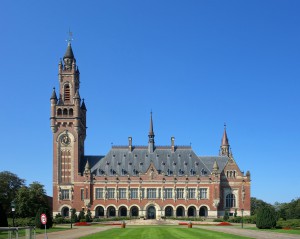 Op 16 januari 2017 heeft Oekraïne een langverwachte zaak tegen Rusland formeel aanhangig gemaakt bij het Internationaal Gerechtshof (IGH), waarbij het de Russische inmenging in Oekraïense aangelegenheden aan de kaak stelt. Oekraïne voert aan dat Rusland verschillende schendingen van het internationaal recht jegens Oekraïne heeft begaan, met name van het Verdrag inzake de Financiering van Terrorisme en het Rassendiscriminatieverdrag. De zaak betreft een groot aantal incidenten, maar relevant is dat deze ook het neerhalen van de MH17 bestrijkt. De zaak is niet bij voorbaat kansloos, al zal Oekraïne eerst over een aantal procedurele en inhoudelijke hordes moeten springen. Lees verder
Op 16 januari 2017 heeft Oekraïne een langverwachte zaak tegen Rusland formeel aanhangig gemaakt bij het Internationaal Gerechtshof (IGH), waarbij het de Russische inmenging in Oekraïense aangelegenheden aan de kaak stelt. Oekraïne voert aan dat Rusland verschillende schendingen van het internationaal recht jegens Oekraïne heeft begaan, met name van het Verdrag inzake de Financiering van Terrorisme en het Rassendiscriminatieverdrag. De zaak betreft een groot aantal incidenten, maar relevant is dat deze ook het neerhalen van de MH17 bestrijkt. De zaak is niet bij voorbaat kansloos, al zal Oekraïne eerst over een aantal procedurele en inhoudelijke hordes moeten springen. Lees verder
Puppet states and human rights abuses: a quest for accountability
 On 30 November 2016, I served as a member of the reading committee at Sciences Po in Paris which conferred a PhD in law on Bogdan Ivanel for his work on puppet states. Mr Ivanel rightly draws attention to the serious accountability problems confronting the current phenomenon of puppet states. Puppet states are secessionist entities located on the territory of one state (the ‘mother state’) but are more or less controlled by another state (the ‘sponsor state’). While the puppet typically has its own governmental institutions and largely functions as a de facto state, it is not normally recognized by the international community. In fact, it can be considered as an extension of the sponsor state, which may occupy the puppet’s territorial base. Most puppet states have been established on the territory of the former Soviet Union, e.g., Nagorno-Karabakh, Transnistria, South Ossetia, Abkhazia, and Eastern Ukraine. Given the current geopolitical stalemate, these entities are not going away any time soon. Thus, it makes sense to take them seriously, or at least to open the debate regarding their accountability towards the citizens they ‘govern’. Accountability for human rights abuses committed on the puppet’s territory, should be realized through a combination of holding the sponsor state, the mother state, and the puppet state itself responsible.
On 30 November 2016, I served as a member of the reading committee at Sciences Po in Paris which conferred a PhD in law on Bogdan Ivanel for his work on puppet states. Mr Ivanel rightly draws attention to the serious accountability problems confronting the current phenomenon of puppet states. Puppet states are secessionist entities located on the territory of one state (the ‘mother state’) but are more or less controlled by another state (the ‘sponsor state’). While the puppet typically has its own governmental institutions and largely functions as a de facto state, it is not normally recognized by the international community. In fact, it can be considered as an extension of the sponsor state, which may occupy the puppet’s territorial base. Most puppet states have been established on the territory of the former Soviet Union, e.g., Nagorno-Karabakh, Transnistria, South Ossetia, Abkhazia, and Eastern Ukraine. Given the current geopolitical stalemate, these entities are not going away any time soon. Thus, it makes sense to take them seriously, or at least to open the debate regarding their accountability towards the citizens they ‘govern’. Accountability for human rights abuses committed on the puppet’s territory, should be realized through a combination of holding the sponsor state, the mother state, and the puppet state itself responsible.
Lees verder
Does the Netherlands’ extradition of genocide suspects to Rwanda violate their human rights?
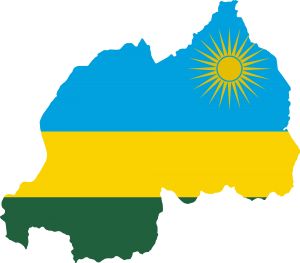 The Dutch Office of the Prosecutor (Landelijk Parket) announced on 12 November 2016 that the Netherlands had extradited two Rwandan nationals to Rwanda, which suspects them of involvement in the 1994 genocide. The way for these extraditions was cleared by the Hague Court of Appeal, which on 5 July 2016 decided that extradition to Rwanda did not violate the suspects’ human rights (decision only available in Dutch). The decision confirms an international pattern of deference to Rwanda in extradition proceedings and of rejection of human rights challenges to extradition. It is to be applauded in that it takes account of the important strides which Rwanda has made with respect to due process protections in the criminal law. Giving the benefit of the doubt may pay important long-term dividends in terms of rule of law learning in a post-conflict state such as Rwanda.
The Dutch Office of the Prosecutor (Landelijk Parket) announced on 12 November 2016 that the Netherlands had extradited two Rwandan nationals to Rwanda, which suspects them of involvement in the 1994 genocide. The way for these extraditions was cleared by the Hague Court of Appeal, which on 5 July 2016 decided that extradition to Rwanda did not violate the suspects’ human rights (decision only available in Dutch). The decision confirms an international pattern of deference to Rwanda in extradition proceedings and of rejection of human rights challenges to extradition. It is to be applauded in that it takes account of the important strides which Rwanda has made with respect to due process protections in the criminal law. Giving the benefit of the doubt may pay important long-term dividends in terms of rule of law learning in a post-conflict state such as Rwanda.
Lees verder
Een MH17-procedure tegen Rusland voor een Nederlandse rechtbank?
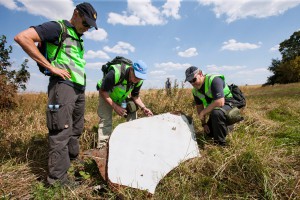 Op 28 september 2016 presenteerde het team dat het strafrechtelijke onderzoek uitvoert naar de MH17-crash (joint investigative team – JIT) een rapport dat vaststelt dat de MH17 neergehaald is door een Buk-raket die uit Rusland naar Oost-Oekraïne is gebracht. Rusland reageerde zoals verwacht furieus op het rapport. Maar als na diepgaander onderzoek inderdaad blijkt dat Rusland betrokken was bij de crash, zouden de slachtoffers Rusland dan voor de rechter kunnen dagen met het oog op het verkrijgen van een schadevergoeding? In mei 2016 dienden 33 nabestaanden van MH17-slachtoffers alvast een claim tegen Rusland in bij het Europees Hof voor de Rechten van de Mens. Aangezien de slachtoffers nalieten een procedure in Rusland aanhangig te maken, is het waarschijnlijk dat het Hof de zaak niet ontvankelijk zal verklaren. Maar waarom zouden de nabestaanden van de Nederlandse slachtoffers geen zaak tegen Rusland aanspannen voor de Nederlandse rechter? Politieke en juridische bezwaren staan zeker in de weg aan zo’n stap. Zoals Amerikaanse praktijk laat zien, zijn ze echter niet onoverkomelijk. Lees verder
Op 28 september 2016 presenteerde het team dat het strafrechtelijke onderzoek uitvoert naar de MH17-crash (joint investigative team – JIT) een rapport dat vaststelt dat de MH17 neergehaald is door een Buk-raket die uit Rusland naar Oost-Oekraïne is gebracht. Rusland reageerde zoals verwacht furieus op het rapport. Maar als na diepgaander onderzoek inderdaad blijkt dat Rusland betrokken was bij de crash, zouden de slachtoffers Rusland dan voor de rechter kunnen dagen met het oog op het verkrijgen van een schadevergoeding? In mei 2016 dienden 33 nabestaanden van MH17-slachtoffers alvast een claim tegen Rusland in bij het Europees Hof voor de Rechten van de Mens. Aangezien de slachtoffers nalieten een procedure in Rusland aanhangig te maken, is het waarschijnlijk dat het Hof de zaak niet ontvankelijk zal verklaren. Maar waarom zouden de nabestaanden van de Nederlandse slachtoffers geen zaak tegen Rusland aanspannen voor de Nederlandse rechter? Politieke en juridische bezwaren staan zeker in de weg aan zo’n stap. Zoals Amerikaanse praktijk laat zien, zijn ze echter niet onoverkomelijk. Lees verder
Al-Saadoon v United Kingdom: another shot at human rights accountability for the extraterritorial use of lethal force
 On this blog, I commented earlier on Jaloud v the Netherlands (2014), the latest judgment of the European Court of Human Rights (ECtHR) on the extraterritorial application of the European Convention on Human Rights (ECHR). A new case before the Court may now be in the making. On 9 September 2016 the Court of Appeal of England and Wales rendered a judgment in the test cases of Al-Saadoon and others v Secretary of State for Defence regarding the question whether the UK is accountable under human rights law vis-à-vis a number of victims of lethal force in Iraq during the 2003 invasion and the post-occupation phase after 2004 (for earlier comments see here and here). The cases raise important issues as to the application of human rights law to the exercise of extraterritorial force over individuals and are likely to wind their way up to the UK Supreme Court and ultimately the ECtHR. Lees verder
On this blog, I commented earlier on Jaloud v the Netherlands (2014), the latest judgment of the European Court of Human Rights (ECtHR) on the extraterritorial application of the European Convention on Human Rights (ECHR). A new case before the Court may now be in the making. On 9 September 2016 the Court of Appeal of England and Wales rendered a judgment in the test cases of Al-Saadoon and others v Secretary of State for Defence regarding the question whether the UK is accountable under human rights law vis-à-vis a number of victims of lethal force in Iraq during the 2003 invasion and the post-occupation phase after 2004 (for earlier comments see here and here). The cases raise important issues as to the application of human rights law to the exercise of extraterritorial force over individuals and are likely to wind their way up to the UK Supreme Court and ultimately the ECtHR. Lees verder
Cholera in Haïti: erkent de VN haar aansprakelijkheid?
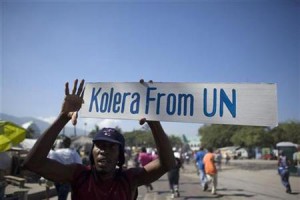 De weigering van de VN om haar verantwoordelijkheid te erkennen voor de uitbraak van een cholera-epidemie in Haïti als gevolg van een gebrekkig sanitair systeem op een VN-basis, is één van de zwarte bladzijden in de geschiedenis van de VN. Dat een woordvoerder van de VN-Secretaris-Generaal op 17 augustus 2016 in de New York Times toegaf dat de VN een rol had gespeeld in de initiële uitbraak, is daarom opmerkelijk. Deze erkenning kwam een dag voor de beslissing van een Amerikaanse rechtbank dat de aansprakelijkheid van de VN niet kan worden ingeroepen voor een nationale rechtbank gezien haar immuniteit van rechtsmacht. Toch lijkt het erop dat de publiciteit en commotie die gepaard gingen met deze rechtszaak druk zetten op de VN om de slachtoffers enigszins tegemoet te komen. Nu valt te hopen dat de VN haar aansprakelijkheid jegens de Haïtianen ook concreet implementeert.
De weigering van de VN om haar verantwoordelijkheid te erkennen voor de uitbraak van een cholera-epidemie in Haïti als gevolg van een gebrekkig sanitair systeem op een VN-basis, is één van de zwarte bladzijden in de geschiedenis van de VN. Dat een woordvoerder van de VN-Secretaris-Generaal op 17 augustus 2016 in de New York Times toegaf dat de VN een rol had gespeeld in de initiële uitbraak, is daarom opmerkelijk. Deze erkenning kwam een dag voor de beslissing van een Amerikaanse rechtbank dat de aansprakelijkheid van de VN niet kan worden ingeroepen voor een nationale rechtbank gezien haar immuniteit van rechtsmacht. Toch lijkt het erop dat de publiciteit en commotie die gepaard gingen met deze rechtszaak druk zetten op de VN om de slachtoffers enigszins tegemoet te komen. Nu valt te hopen dat de VN haar aansprakelijkheid jegens de Haïtianen ook concreet implementeert.
Lees verder
Accountability voor internationale misdaden in Afrika: een nieuwe dageraad na de veroordeling van Hissène Habré?
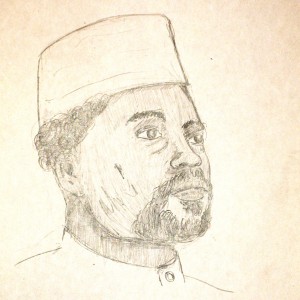 Op 30 mei 2016 veroordeelden de ‘Buitengewone Afrikaanse Kamers in de Senegalese Rechtbanken’ de voormalige dictator van Tsjaad, Hissène Habré, tot een levenslange gevangenisstraf voor het begaan van misdaden tegen de mensheid en foltering. De veroordeling van Habré werd uiteraard door zijn slachtoffers met gejuich onthaald. Maar er is meer: ze wordt geroemd als ‘a watershed for human rights in Africa’ en ‘an example to follow’. Het lijkt er evenwel op dat de veroordeling van Habré de geschiedenis zal ingaan als een eenmalige gebeurtenis, het resultaat van een uitzonderlijke samenloop van omstandigheden die zich niet snel zullen herhalen. Lees verder
Op 30 mei 2016 veroordeelden de ‘Buitengewone Afrikaanse Kamers in de Senegalese Rechtbanken’ de voormalige dictator van Tsjaad, Hissène Habré, tot een levenslange gevangenisstraf voor het begaan van misdaden tegen de mensheid en foltering. De veroordeling van Habré werd uiteraard door zijn slachtoffers met gejuich onthaald. Maar er is meer: ze wordt geroemd als ‘a watershed for human rights in Africa’ en ‘an example to follow’. Het lijkt er evenwel op dat de veroordeling van Habré de geschiedenis zal ingaan als een eenmalige gebeurtenis, het resultaat van een uitzonderlijke samenloop van omstandigheden die zich niet snel zullen herhalen. Lees verder
Justice Scalia and international law
 The recent passing away of US Supreme Court Justice Scalia has inevitably thrust his – often dissenting – opinions into the limelight. Little attention has been paid, however, to Scalia’s approach to international law in his opinions. It is an easy and understandable temptation to characterize Scalia as an American sovereigntist viscerally opposed to international law influences on Supreme Court judgments and the US legal system at large. The reality of his opinion-writing is more complex, however; some opinions are indeed hostile to international law, while others far less so.
The recent passing away of US Supreme Court Justice Scalia has inevitably thrust his – often dissenting – opinions into the limelight. Little attention has been paid, however, to Scalia’s approach to international law in his opinions. It is an easy and understandable temptation to characterize Scalia as an American sovereigntist viscerally opposed to international law influences on Supreme Court judgments and the US legal system at large. The reality of his opinion-writing is more complex, however; some opinions are indeed hostile to international law, while others far less so.
Lees verder
Reactie op ‘MH17-proces wordt erg lastig in Nederland’
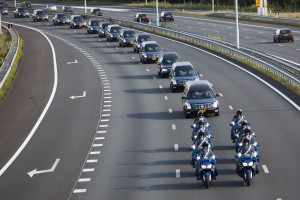 In ‘MH17-proces wordt erg lastig in Nederland’ (NRC 20 januari 2016) maakt het NRC melding van een discussie over de draagwijdte van artikel 552y van het Wetboek van Strafvordering. De Nederlandse overheid zou deze bepaling willen aangrijpen om voor een Nederland voor een Nederlandse rechtbank gerechtigheid voor de MH17-crash te laten geschieden voor alle slachtoffers, dus niet enkel deze met de Nederlandse nationaliteit. Aangezien het grootste deel van de slachtoffers de Nederlandse nationaliteit, komt Nederland onvermijdelijk in beeld. Nederland heeft het veiligheidsonderzoek uitgevoerd en leidt het joint investigative team, de Nederlandse strafwet maakt berechting voor moord mogelijk, zelfs in de fysieke afwezigheid van de dader, en Nederland staat internationaal bekend om zijn onpartijdige en onafhankelijke rechtspraak. Nederland lijkt me zonder meer in staat het MH17-proces tot een goed einde te brengen. Opdat dit proces aan legitimiteit zou winnen, lijkt het me evenwel raadzaam ook andere landen te betrekken bij de berechting. Lees verder
In ‘MH17-proces wordt erg lastig in Nederland’ (NRC 20 januari 2016) maakt het NRC melding van een discussie over de draagwijdte van artikel 552y van het Wetboek van Strafvordering. De Nederlandse overheid zou deze bepaling willen aangrijpen om voor een Nederland voor een Nederlandse rechtbank gerechtigheid voor de MH17-crash te laten geschieden voor alle slachtoffers, dus niet enkel deze met de Nederlandse nationaliteit. Aangezien het grootste deel van de slachtoffers de Nederlandse nationaliteit, komt Nederland onvermijdelijk in beeld. Nederland heeft het veiligheidsonderzoek uitgevoerd en leidt het joint investigative team, de Nederlandse strafwet maakt berechting voor moord mogelijk, zelfs in de fysieke afwezigheid van de dader, en Nederland staat internationaal bekend om zijn onpartijdige en onafhankelijke rechtspraak. Nederland lijkt me zonder meer in staat het MH17-proces tot een goed einde te brengen. Opdat dit proces aan legitimiteit zou winnen, lijkt het me evenwel raadzaam ook andere landen te betrekken bij de berechting. Lees verder

